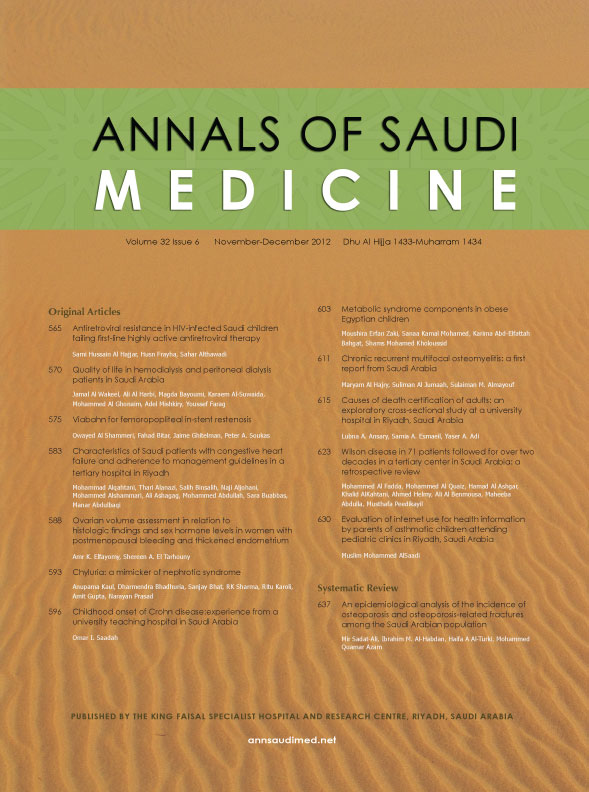 In April, we wrote about a group of cancer researchers from Tunisia:
In April, we wrote about a group of cancer researchers from Tunisia:
The M.O. of the group…appears to be quite simple: Find a study that looks easy to “replicate,” change a few of the particulars and submit as if it were a piece of local, original work.
One of the papers we cited in that post for appearing to be heavily plagiarized has now been retracted, with a heavy penalty for the authors. Here’s the notice, from the Annals of Saudi Medicine:
The following article is retracted because it was brought to our attention that it was heavily plagiarized from an earlier article published in the Asian Journal of Surgery (Chow et al. Asian J Surg. 2005 Jul;28(3):179-84. PMID: 16024311). Attempts to contact the corresponding author for an explanation were unsuccessful.
The authors are banned from future publication in the Annals of Saudi Medicine.
Awatef M, Olfa G, Kacem M, Sami L, Makram H, Slim BA. Association between body mass index and risk of breast cancer in Tunisian women. Ann Saudi Med. 2011 Jul-Aug;31(4):393-7. PubMed PMID: 21808117; PubMed Central PMCID: PMC3156517.
The paper has yet to be cited, according to Thomson Scientific’s Web of Knowledge.
We’ve written about publishing bans before. They’re not common.
Update, 11:45 a.m. Eastern, 12/11/12: The journal’s senior editor, John Cathey, tells us by email:
We check at time of submission for duplicates and for the last several months we attempt to detect plagiarism. We’ve been using eTBlast but it seems to be not working now, so we’re trying others and may pay for iThenticate or another system, which we’re still evaluating. At the time the Tunisian paper was submitted we were using another publisher who had a so-called plagiarism checker but apparently it wasn’t working too well. When I ran the Tunisia paper in eTBlast, the Chinese paper came up like a sore thumb.
I’m not sure about your last sentence. Are publishing not common, or are they not commonly reported? Energy Economics, a journal that I edit, bans authors for life. We catch most unethical behaviour during the review process, so that there is no reason to publish such bans. I’m not convinced that privacy laws would allow us to publish this.
We’ve come across only a handful in more than two years. COPE opposes them. We wrote a column about this, supporting such bans, here: http://www.retractionwatch.com/2011/10/21/should-journals-ban-researchers-found-guilty-of-fraud-from-publishing/
This is because the ban notice is given to respective authors directly by email, and of course they will hide this. For instance, in the case of the Brazilian Forensic Entomologists Claudio J Von Zuben and Leonardo Gomes mentioned in this blog (and also in Science Fraud.org and Abnormal Science), they were banned from at least two different journals, including the Journal of Insect Behavior. We only know this because we read their communication with editors.
I think it would be helpful if journals disclosed a list of banned authors, even for their own memo.
@Hibby
I’m not sure that would be legal. Mine is an Elsevier journal, and Netherlands privacy law is strict.
“We catch most unethical behaviour during the review process”. Why this blog then?
A quick search through this site shows that no Energy Economics papers have been mentioned.
A bit of a non-sequitur.
The site is mostly biomedical, some chemistry and physics, a bit of maths.
I think that explains why we don’t see so much in the Energy Economics line.
@Fernando
During my tenure as an editor, Energy Economics has never had to retract a paper.We published a couple of errata, and one apology for a rather convoluted plagiarism-or-maybe-not case.
We did ban a handful of authors, but off the public record.
…maybe readers did not investigate past publications closely enough? Or editors refrained from retracting papers when appropriate? At least in my field a periodical with no retractions would fit either category. Catching fraud during review is usually restricted to obvious cases, and history tells honest authors are maybe only the rule in some other planet.
@Hibby
You’re free to investigate. Would suit you better than unsubstantiated assertions.
Unfortunately I cant… it is hard to efficiently investigate papers out of one’s field. Yet I bet pretty fishy things are bound to come up from any large sample of scientific papers from any field/periodical under the close scrutiny by good scientists. Don’t think any area/journal is exceptional, yet in some things are not always brought up in the open for public view.